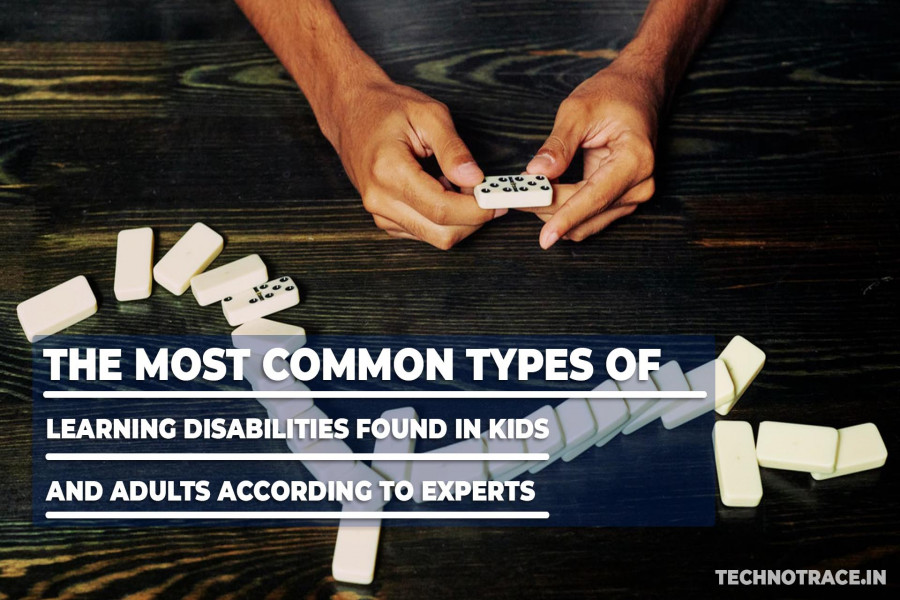1

The Most Common Types of Learning Disabilities we found
Differently able, not disable
By Techno Trace - October 07, 2021 - In Blog, MENTAL WELLNESS

Learning disability does not mean that you are very weak or not intelligent. Sabrina Romanoff, the clinical psychologist, and professor at Yeshiva University in New York City tells Health,
it is linked to a negative home or school environment, she adds. Instead, learning disabilities can be hereditary, or they may be brought on or exacerbated by psychological or physical trauma, environmental exposure.
You may face this problem from your childhood days, but sad people don’t give much attention when you face such problems in your childhood. However, not every time people are born with such differently able brains, sometimes we develop also. Even in your adult age, you can face this problem because of your lifestyle, less motivational environment, office or family pressure.
The problem won’t go away unless you treat them properly. It will just get bigger each passing day.
If you won’t give it proper attention then it will lead you to mental health problems as well. Romanoff says people will ask "answers as to why they have difficulties in certain areas academically or their daily lives as they pertain to their relationships or general functioning."
Before treating the problem, you have to recognize it.Let’s get to know some of the common learning disorder

Dyslexia
Dyslexia is not simply about reading ability. Reading ability is simply a by-product of Dyslexia. It is an inability to recognize, work with and understand characters or text. This problem feels frustrating at times. Because of their mindset they will face desperation, anxiety, they quit studying, they feel like they are dumb, they have problems communicating with other people because of insecurity and low self-esteem.
Sometimes patients who have Dyslexia, find issues in pronouncing words due to the void of imprinting the word in the brain cells.
Dyslexia is a significant drawback or brain or neurological condition that affects the ability to speak, write, and read.

Dyscalculia
Dyscalculia is, by definition, a learning disability that affects mathematics ability. Often it is so intense that a person cannot learn even the most basic arithmetic without a lot of work.
"Dyscalculia generally refers to problems acquiring basic math skills, but not to problems with reasoning," Romanoff says.
A 2019 study estimates that between 3-7% of people have dyscalculia around the globe.
The positive part has been seen that people with dyslexia are often highly creative, finding success in a range of skilled professions.
Dyscalculia is a mathematical skill learning-related problem.

Dysgraphia
Dysgraphia is the inability to write correctly, as a symptom of brain disease or damage.
There are three types of learning
- 1. Visual-Spatial
- 2. Fine motor
- 3. Language processing
People who have Dysgraphia suffers a lot with poor handwriting problem and letter recognition problem.
Dysgraphia means a learning disability relating to meaning in language or logic.

Non-Verbal learning disorder
Nonverbal learning disorder (NLD or NVLD), is a very much overlooked problem in modern times. Especially the children face this problem. However one can treat this problem. In this problem, the brain is characterized by poor visual, spatial, and organizational skills; difficulty recognizing and processing nonverbal cues.
Patients who have Non-verbal learning disorders, often talk excessively to compensate for their difficulties.
Non-verbal learning disability often leads to anxiety and depression.
Non-verbal learning disorder patients may lack verbal IQ, performance IQ, visual-spatial skills, and motor development.

Dyspraxia
Dyspraxia is also known as DCD: Developmental Coordination Disorder. Few symptoms of this disorder are
- Poor memory skills
- Easily distracted
- Activities have to be broken down
- Difficulties in Riding a bike
- Bad handwriting
- Organization problem
- Poor listening skills
- Difficulty getting ideas on paper
Dyspraxia is a development disorder that affects the way our brain communicates with our bodies.
Dyspraxia is a ‘Clumsy Child Syndrome.

Attention-deficit hyperactivity disorder (ADHD)
Schiff says, "There is a misconception that the term learning disabilities is interchangeable with other disorders,"
Attention Deficit Hyperactivity Disorder (ADHD) is a neurodevelopmental disorder that leads to the ineffective usage of dopamine and/or norepinephrine in the executive region of the brain ie the orbital prefrontal cortex. It can be found in child and adults both.
Attention-deficit hyperactivity disorder (ADHD) challenges concentrating and focus for lengthy periods on any one particular task.

Auditory and visual processing disorders
Schiff says in a recent research that, in this type of disorder patients have "difficulty receiving and responding to information that comes through the senses, despite normal hearing and vision,"
Everyone with auditory processing disorder does not experience the same thing. It is different for different people.
Auditory and visual processing disorders mean difficulty in processing sounds that is not directly related to the acuity of hearing.
Anyway, thank you so much for reading. I appreciate your time and effort. If you’ve any questions about this post then don’t deny your heart with hesitation. I’m always open to any suggestions. Leave a clap if liked it. Every CLAP is your appreciation for my words.
Share if you consider this important to someone.
Have a great day, Cheers!
1






_1634718121.jpg)





Comments